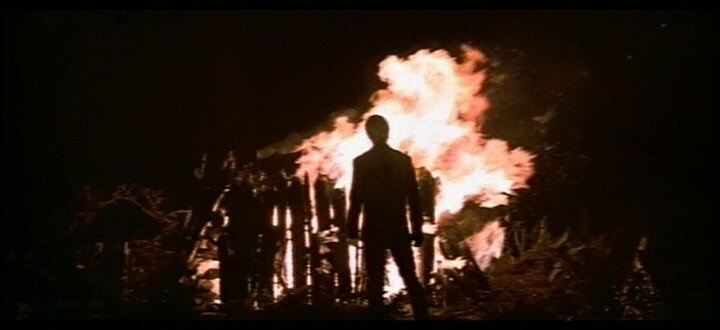I Think It's Dead
846 words.
Originally posted on my writing blog which was active from 2010 to 2018.

I think it’s dead. Airworld, that is.
It’s been almost a year since Naobi strode from her Orderhouse without looking back, determined to move forward. It was an opening sentence that was carefully crafted to show that the character had autonomy right from the very beginning, taking action instead of reacting, physically moving through space. All the things that we aspiring writers are told will make readers more likely to keep reading.
But somewhere along the way, the story fell apart. Well, not somewhere. One specific, exact moment. (The moment when Naobi stands trial in Leavon, fyi.) All at once the characters lost their control over events and turned into victims. I know precisely what the problem is. I know precisely what to do to fix it: The characters need to take charge and get out of trouble themselves, rather than wait for someone else to help (or hurt) them.
But now that I know what to do, I don’t know how to go about doing it. How is Naobi supposed to escape from a cell and evade an entire town? How is Cheton supposed to help her when he’s beaten up and unconscious? Where are they even supposed to go? I have no idea. So when I sit down to write, I stare at a blank editor for a while, then close it and do something else.
This is not good. When you’re looking at a blank editor screen, re-working a novel more-or-less from scratch sounds like a lot of hard work. It sounds incredibly daunting - a giant mountain peak that I can’t get over by jumping or any other means.
I’ve tried skipping the part where I’m stuck to write some other parts later in the story. But somehow it never felt quite right. I’ve tried writing a detailed outline with extensive worldbuilding to plot out all these new characters and their interactions and backgrounds, and come up with a war with three factions. Then I realized that all of that stuff takes the story far, far away from the simple adventure it started out to be, and it would be silly to introduce such complexity over halfway through the book anyway. My latest assessment is that the events that occur in Leavon need to fundamentally change to make the rest of the story work.
Now, almost a year later, I need to decide: Should I put more work into recessitating Airworld, or just let it die?
Well, I’ve decided. It’s dead. Into the stack of unfinished ideas it goes. It doesn’t even deserve to go into the stack of finished-but-needs-work pile with Neofuel and Kubak and Tel.
It’s time to reset and start something new.
Here’s one lesson I can take from this.
When I’m writing a first draft, I spend too much time and effort trying to come up with solutions that are realistic and make sense. Ones that people can’t point to and say, “Wait a minute, how can he pick that lock when you never said he was a skilled locksmith?” Or, “Wait a minute, how did they cross fifty miles of mountain terrain on foot in two days?” Those are the kinds of things that saavy readers will notice, and SFF readers tend to be pretty saavy.
But in the first draft, accuracy doesn’t matter. In the first draft, the solution to every unexpected problem should be magical faery dust. He picked that lock by blowing on it and concentrating really hard. They moved fifty miles in two days because they jumped right over the top of those peaks like Superman.
I feel like this was a major problem with Airworld. In real life, Naobi and Cheton would not be able to escape from a 17th century cell. There’s no sensible way to get them out of there. Leave a key hanging on the wall? No, why would anyone do that? It’s a movie cliche! Squeeze through a window? No, there wouldn’t be any windows in a 17th century cell. Break open the lock? No, give me a break. They don’t have any hammers anyway. Bend the bars? No way, it’s solid steel. They are stuck. At the mercy of their captors. In real life, their quest would probably end there.
In the future, if I have my characters locked up in an inescapable prison, and my outline says they need to escape, then they need to escape by any means necessary. “Later that day, they escaped.” That’s what the draft will say, with some kind of marking to indicate that I should probably expand upon that later. I might be tempted to say something like, “A man came along and helped them escape,” because obviously in real life they would *need* help to escape an inescapable prison. But for the purposes of storytelling it is much better for the characters to act on their own.
So, I need to keep that in mind. It’s surprisingly easy to forget that accuracy in the first draft doesn’t matter.
Sorry, new comments are disabled on older posts. This helps reduce spam. Active commenting almost always occurs within a day or two of new posts.